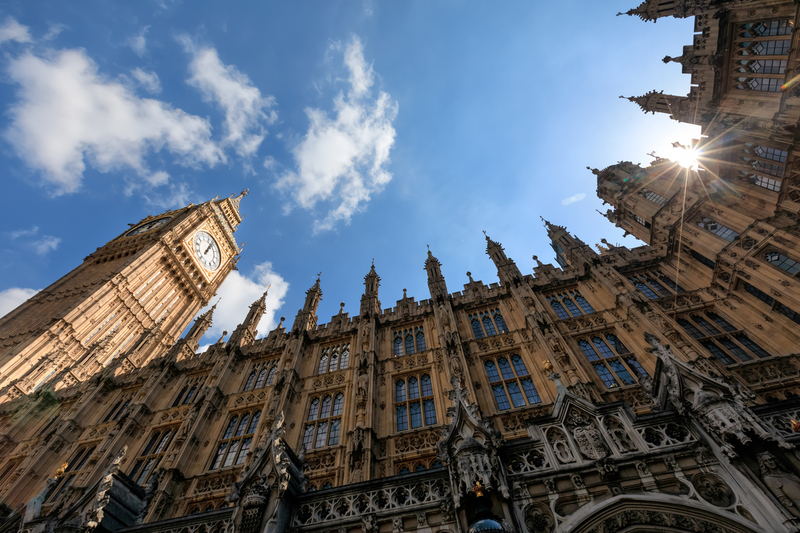Dear visitor,
You're reading 1 of your 3 free news articles this quarter
Register with us for free to get unlimited news, dedicated newsletters, and access to 5 exclusive Premium articles designed to help you stay in the know.
Join the UK's leading credit and lending community in less than 60 seconds.
Credit card and loan repayments should be frozen for struggling borrowers, says FCA
Struggling customers shouldn’t be charged interest on the first £500 of their overdraft for 90 days, and credit card repayments should be frozen for three months, according to the Financial Conduct Authority’s (FCA) latest proposals to ease the burden on consumers during the Covid-19 outbreak.

Editor at Credit Strategy. Previously held roles at Accountancy Age, Accountancy Daily and the Leicester Mercury.
The FCA also suggested repayments on loans and credit cards should be frozen for up to three months for those in trouble as part of a “temporary stop gap” to support consumer credit products.
The package is intended to complement measures already announced by the government to support mortgage holders and renters, along with the assistance being provided for furloughed employees and the self-employed.
Given these measures would span a wide variety of firms the FCA is conducting a brief consultation on the measures. However, given the national emergency and the significant impact on consumers’ finances right now, it is asking financial services firms to respond by Monday, April 6, 2020. If confirmed, the measures would start to come into force by April 9, 2020.
The regulator said the outbreak had caused an “unprecedented financial shock”.
Its proposals in full are:
- Firms to offer a temporary payment freeze on loans and credit cards where consumers face difficulties with their finances as a result of coronavirus, for up to three months;
- Ensure that for customers who have been hit financially by the coronavirus and already have an arranged overdraft on their main personal current account, up to £500 will be charged at zero interest for up to three months;
- Require firms to make sure that all overdraft customers are no worse off on price when compared to the prices they were charged before the recent overdraft changes came into force;
- Ensure consumers using any of these temporary measures should not have their credit rating affected.
Christopher Woolard, interim chief executive of the FCA, said: “Coronavirus has caused an unprecedented financial shock with far-reaching consequences for consumers in every corner of the UK. If confirmed, this package of measures we are proposing will help provide affected consumers with the temporary financial support they need to help them weather the storm during this challenging time.”
Peter Tutton, head of policy at StepChange Debt Charity, said: “We have already seen a number of firms introducing temporary payment holidays and forbearance, but to know that as a bare minimum people would effectively have a three-month freeze period would provide enormous peace of mind to many. This approach would also help debt advice organisations by introducing a welcome and clear expectation level of minimum standards of help people can rely upon, reducing the need for constant checking on what individual creditors might be offering as a stopgap emergency measure.”
Joanna Elson, chief executive of the Money Advice Trust, said: “The financial shock to households that the coronavirus outbreak has caused is like nothing we have seen before – and the FCA is right to step in to ensure payment freezes on loans and credit cards where customers are struggling.
“We need to know more, however, about what the regulator intends to do on other types of borrowing like car finance, guarantor loans and other high cost short term credit products. For forbearance to work, it has to cover all forms of borrowing, to help people through this difficult period.
“Some firms have been ahead of the regulator in offering targeted forbearance for consumer credit customers affected by Covid-19 – but it’s important that all firms offer the same support. The FCA should also be prepared to extend these measures beyond three months if needed.”
Keith Richards, chief executive of the Personal Finance Society, added: “Ensuring clients do not have their credit ratings negatively impacted by using the temporary reliefs available if they are financially impacted by the coronavirus will be a key component in ensuring a swift recovery for the mortgage market and welcome the FCA’s clarification to the market.
“There will be a large number of people whose finances will be seriously affected by coronavirus, but who will be able to rebuild their financial position quickly once the initial crisis is over. It is important that these people are not prevented from restoring their finances by being forced into short term debt, or by having their credit status reduced and I know that many Lenders are already adopting a flexible approach un the circumstances.”
Stay up-to-date with the latest articles from the Credit Strategy team
READ NEXT
Via Atal: Unlocking global growth
The Budget - 2p National Insurance cut confirmed by the Chancellor
2024 Credit 500 unveiled
Get the latest industry news








